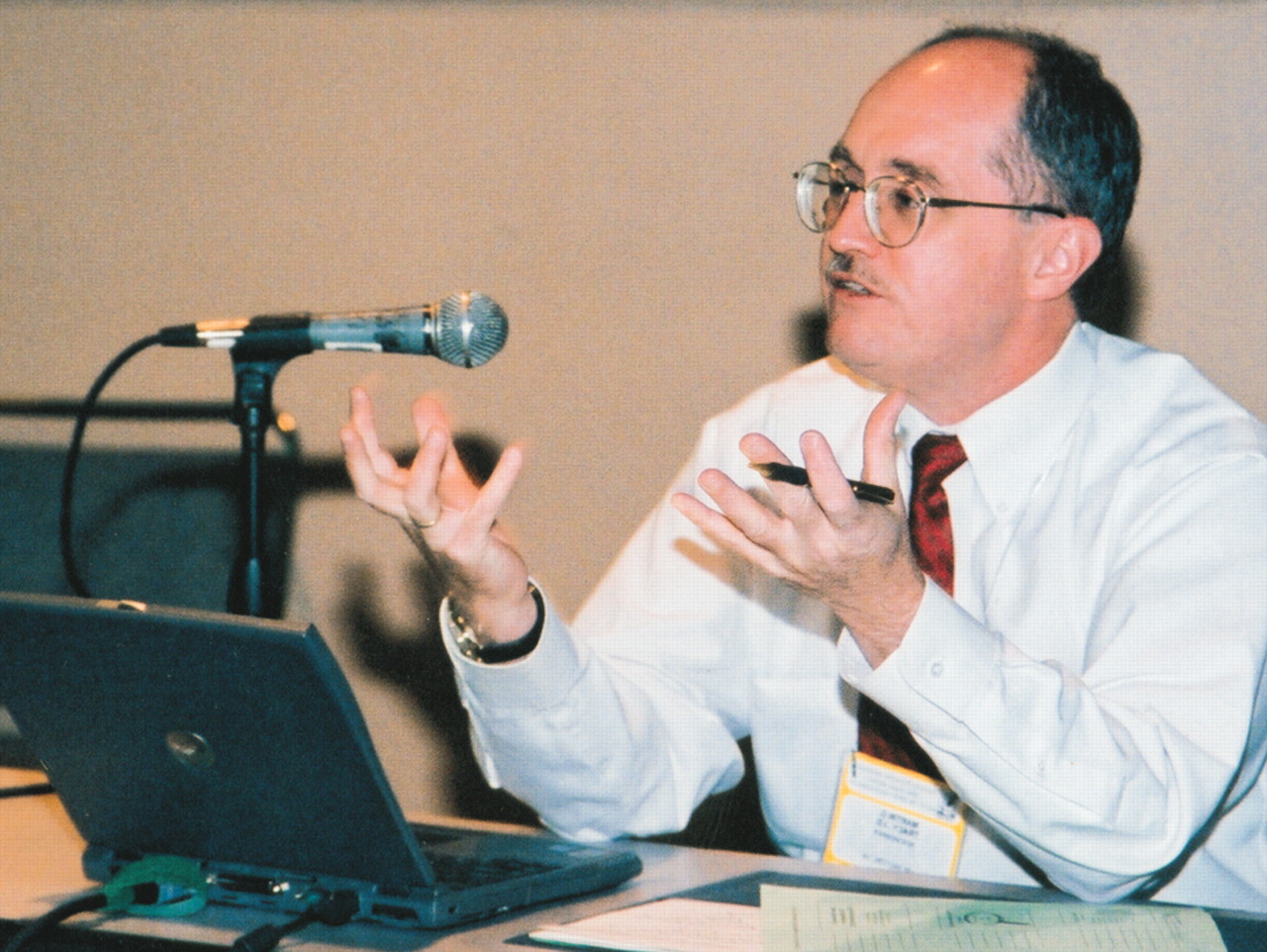Career Change Can Raise Risk-Management Issues
It has become common in the last few years for psychiatrists to look beyond patient care for professional challenges that allow them to increase their income by putting their expertise to new uses. What many don't realize, however-at least until they are facing a crisis -is that a different set of legal issues comes into play when they venture beyond the boundaries of their traditional practice.
Representatives of Professional Risk Management Services (PRMS), the company that manages the APA-endorsed liability insurance program, provided psychiatrists with some direction through the legal shoals of nontraditional practice at APA's annual meeting in San Francisco in May.
Take the practice of forensic psychiatry, for example, in which psychiatrists must work within the framework that the people they routinely evaluate are not patients.

Martin Tracy, J.D., steers psychiatrists around the legal pitfalls of a practice that ventures beyond patient care.
Jacqueline Melonas, J.D., vice president of risk management at PRMS, added that she is beginning to hear a lot about problems with psychiatric expert witnesses who testify in states other than the one in which they are licensed. There have been no legal cases yet over this issue, "but it is an area of concern," she said. To head off any licensure problems, Melonas urged psychiatrists who testify in a jurisdiction or perform forensic evaluations in a state where they aren't licensed to learn the requirements and inquire whether a limited license might be needed.
Occupational Consulting
Another professional area that has attracted psychiatrists of late is occupational consulting, such as contracting with a police department to evaluate job candidates or current employees.
A psychiatrist in this professional role could be asked, for example, to evaluate an officer whose actions lead superiors to suspect a drinking problem. After finding that this is in fact true, the psychiatrist informs appropriate parties of the finding, and they then order the officer to get treatment for the alcohol problem. Months after completing the program and returning to work, the officer asks the psychiatrist if he can begin therapy with him or her.
Again, legal risk to the psychiatrist can be significantly reduced, Tracy said, if he or she "establishes boundaries early and maintains them after the evaluation interview is over." Psychiatrists have to remember that this arrangement prohibits them from later agreeing to treat an officer evaluee as a patient, though he noted that "it isn't clear just how long that ban should last." No matter how much time has gone by, however, he advised being extremely wary of acting in two capacities with a person -as evaluator and therapist.
Family-Business Intervention
Business consulting has also become a career path for some psychiatrists who want to diversify their careers. Included here are such opportunities as acting as a consultant to family businesses experiencing problems and conflicts. A psychiatrist may carve out a role in helping the family members find solutions that end the strife, Tracy noted.
As with occupational consulting, this role is not the practice of medicine, and he cautioned that related professional activities are unlikely to be covered by malpractice insurance. If the psychiatrist does end up being sued for damages, the damages would likely arise from contractual or business- based claims, he said.likely arise from contractual or business- based claims, he said.
Another business consulting opportunity that arose in the 1990s was helping merging high-tech businesses minimize their consolidation problems. "A few psychiatrists made a very good living" on advising companies on how to blend their clashing corporate cultures and address ensuing morale problems, Tracy pointed out. For psychiatrists who choose this path, Tracy said, "You have a contractual obligation to the board [of directors] who hired you," not to an employee or officer who reveals a problem and expects that information to be held in confidence. "You need to tell everyone you meet with up front that you are not there for therapy," he stressed.
Attorney David Cash, J.D., a risk-management consultant to PRMS, suggested that being certified in forensics or other subspecialty areas could reduce liability risk for psychiatrists planning a career shift, since it would provide evidence of expertise in that field.
Tracy also had some risk-management advice for psychiatry residents. From a legal standpoint, residents are employees of the institution where they are doing their residency, and legally that program is responsible for the resident, he said.
The liability situation changes dramatically, however, when residents moonlight elsewhere. The other facility, Tracy emphasized, is unlikely to provide malpractice coverage. Residents often discover the cost of buying an individual policy doesn't make the extra income worthwhile.
And it is not just moonlighting at a different facility that can place residents at risk if a malpractice suit is filed, he noted. A psychiatry resident who works part time, for instance, in the emergency room of the hospital where he or she is employed may not be covered by a malpractice insurance policy.
Tracy's advice: "Ask a lot of questions" before changing or expanding your practice. And remember, "Lawyers are going to be part of your life" no matter what the practice focus is. He strongly urged psychiatrists to develop a relationship with a lawyer who knows the business aspects of medicine and can review all contracts and insurance policies. ▪



